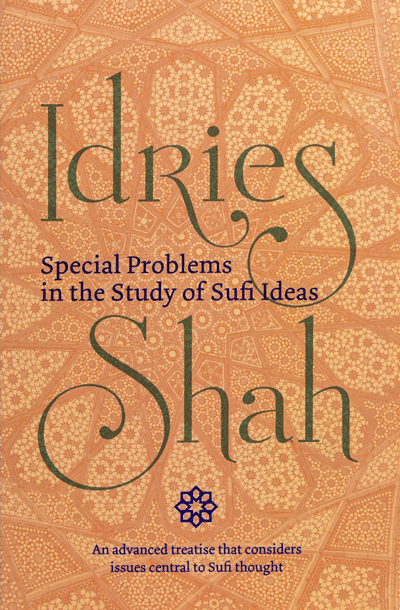An important monograph of Idries Shah’s Seminar at Sussex University outlining the modern distorting influences and misunderstandings of Sufi knowledge and teaching.
Special Problems in the Study of Sufi Ideas is a remarkable overview of the various psychological responses that lead to the misreading of higher knowledge – thus preventing its learning.
The book knits together the available knowledge about Sufi thought and literature and its many warping tendencies such as: the development of cults, the misinterpretation by literalist scholars, and the fallacious theories about what Sufism is.
As in his other works, but in a more compact a manner here, Shah attempts to set the record straight, insisting that only information can combat incorrect facts. ‘Sufism,’ he writes, ‘like many another way of knowledge, can either be employed for purposes of recreation – to confirm existing belief and to give emotional stimulus – or else one can learn from it.’
Special Problems in the Study of Sufi Ideas is an advanced work that is fully annotated, indexed and includes a bibliography and notes.
Preface
Theories about Sufis
Limitations of Contemporary Approaches to Sufism
Misunderstandings of Sufi Ideas and Formulations
Forms of Sufi Activity
Difficulties in Understanding Sufi Materials
Example of Sufi Ideas from Jalaludin Rumi (1205–1273)
Some Assessments of Contemporary Sufi Writing
Notes and Bibliography
Index
Idries Shah was born in India in 1924 into an aristocratic Afghan family. He was an author and teacher in the Sufi tradition and is considered one of the leading thinkers of the 20th century.
Shah devoted his life to collecting, translating and adapting key works of Sufi classical literature for the needs of the West. Called by some 'practical philosophy' - these works represent centuries of Sufi and Islamic thought aimed at developing human potential. His best-known works include the seminal book The Sufis, several collections of teaching stories featuring the ‘wise fool’ Nasrudin, Reflections and Knowing How to Know.
Shah's corpus - over three dozen books on topics ranging from psychology and spirituality to travelogues and cultural studies - have been translated into two dozen languages and have sold millions of copies around the world. They are regarded as an important bridge between the cultures of East and West.
